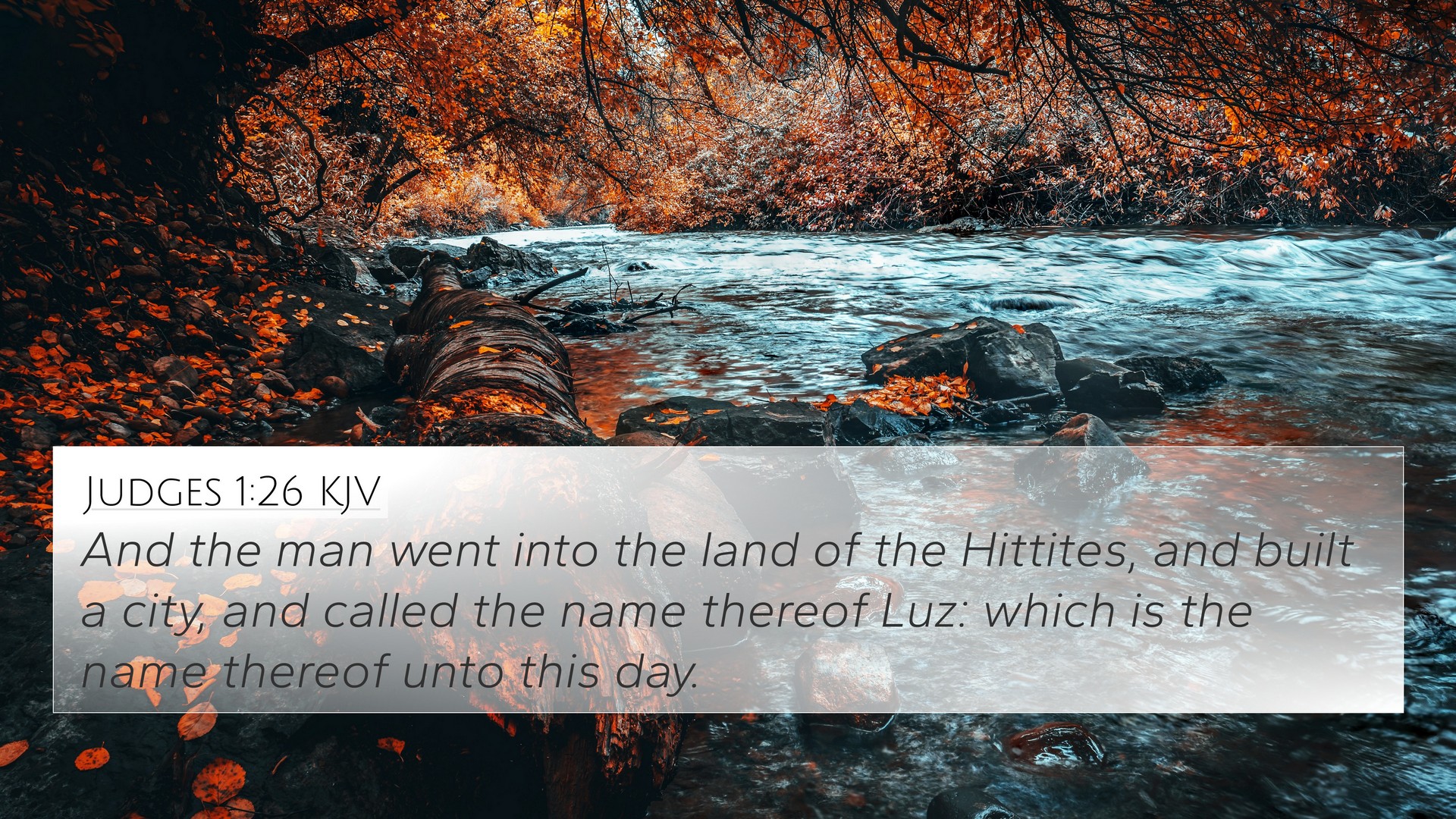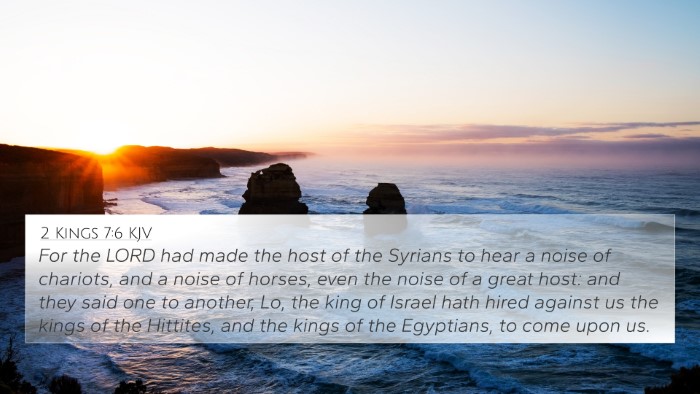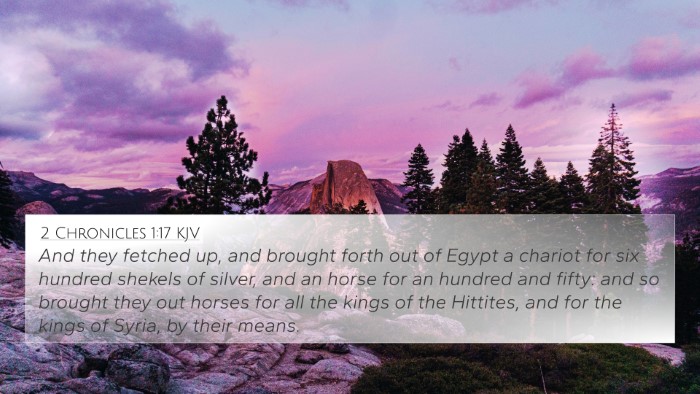Understanding Judges 1:26
Judges 1:26 states: "And the man went into the land of the Hittites, and built a city, and called the name thereof Luz: which is the name thereof unto this day." This verse provides insight into the actions of an individual who, after fleeing from a conquering Israelite force, establishes a city that remains significant to this day. Here we will explore various aspects of this verse using insights from public domain commentaries.
Contextual Overview
The Book of Judges unfolds a period of Israel's history marked by cycles of apostasy, oppression, and deliverance. Judges 1 describes the conquest of Canaan by the Israelites following their exodus from Egypt. This verse notable details about a fugitive who manages to establish a city, thus underscoring themes of survival and resilience.
Interpretations from Commentators
-
Matthew Henry: Reflecting on Judges 1:26, Henry notes the importance of Luz as a fortified city and suggests that it represents the persistence of the original inhabitants and their culture amidst the incursions of Israel. He emphasizes the notion that despite Israel's victories, remnants of the original Canaanite population continued to exist.
-
Albert Barnes: Barnes focuses on the cultural implications of the new city built by the man from the Hittite lineage. He argues that this reflects the ongoing influence of Canaanite civilization and the challenge Israel faced in fully possessing the Promised Land. This highlights the socio-political intricacies of the times where assimilation and conflict coexisted.
-
Adam Clarke: Clarke suggests that Luz might refer to a site with historical significance linked to the Hittites. He draws parallels to Genesis 28:19, where the name Luz is first mentioned, thus inviting a deeper exploration of its significance over time and its role within the larger biblical narrative.
Cross-References and Thematic Connections
To enrich the understanding of Judges 1:26, it is essential to explore cross-references that illuminate its themes. Here are some notable connections:
- Genesis 28:19 - Luz is first mentioned as the name of a place that Jacob named Bethel, marking its historical prominence.
- Deuteronomy 7:1 - God commands Israel to destroy the nations in Canaan, which echoes the ongoing struggle for control represented in Judges 1.
- Joshua 16:2-3 - The territorial boundaries assigned to the tribes of Joseph demonstrate the attempts to fully possess Canaan land.
- Judges 1:22-25 - The accounts of battles against the Canaanites reflect Israel’s fluctuating success in conquering the land.
- 1 Kings 9:18 - Mention of the city that Solomon built named after Luz suggests continued relevance in the biblical chronology.
- Hebrews 11:32-34 - This passage acknowledges the faith of judges, including the struggles faced in conquest.
- 2 Chronicles 8:5 - Solomon’s cities reflect the long-standing connections and developments in the region since the time of Judges.
Thematic Analysis
Judges 1:26 serves as a microcosm of the broader themes of struggle, establishment, and the complexities of ancient Israelite society. The verse reflects the reality that:
- The conquest of the Promised Land was not absolute, and remnants of previous cultures persisted.
- Legacy cities like Luz signify the intersection of power dynamics and cultural identity.
- Israel’s journey involved not only military conquests but also the establishment of enduring communities.
Conclusion
In Judges 1:26, we observe the resilience of a people anchored in their identity and the enduring significance of places and names throughout biblical history. By examining this verse through the lens of cross-referencing, it is clear that Scripture is a unified tapestry, interwoven with connections that enhance understanding across both the Old and New Testaments.
Importance of Cross-Referencing
Utilizing tools for Bible cross-referencing such as a Bible concordance or cross-reference Bible study can greatly enhance one’s understanding of Scriptures. The ability to see connections between different passages enriches the depth of study and reveals the continuity of Biblical themes throughout the text.
Final Thoughts
Understanding Judges 1:26, alongside its inter-Biblical dialogue and connections to other Scriptures, allows readers to appreciate the greater narrative of the Bible. Whether analyzing themes of conquest, survival, or cultural intersection, cross-referencing remains an invaluable method for deepening one's comprehension and appreciation of biblical texts.




